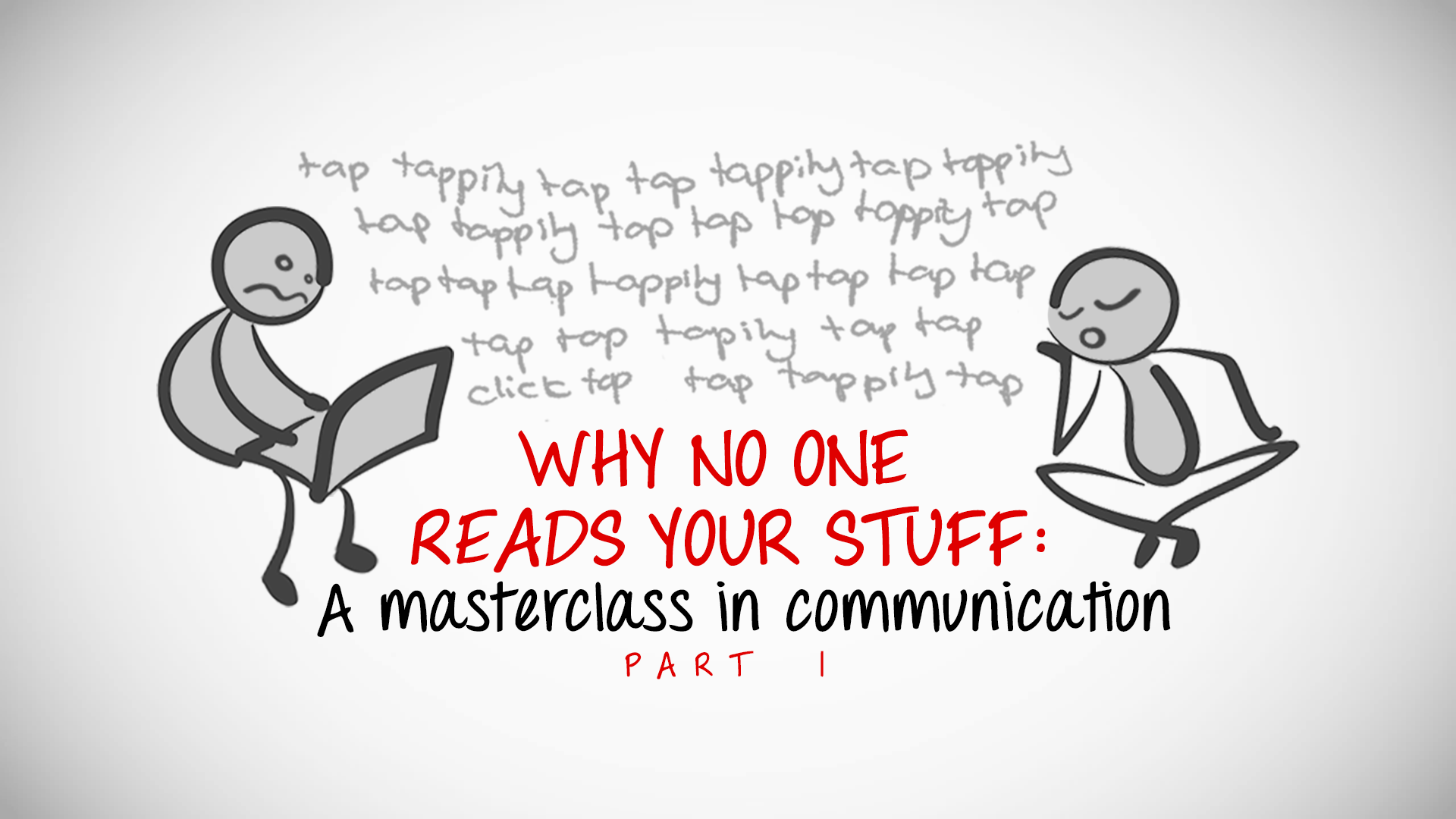
“Dammit, I hate this! When I click ‘publish’ I earn nothing, when they click ‘publish’ they practically print money!” Emma banged the coffee table with her fist.
“I understand,” I replied.
“Do you, Dad? It feels so bad. I poured hours of my life into that post and all they do is name-drop Elon Musk and watch the upvotes flood in.”
“That sounds terrible.”
“It is! It just proves that people really do suck.”
“That’s possible.”
“Why doesn’t anyone read what I f**king write?!”
“I could tell you.”
“Then do it! Why are you just sitting there giving me two-word answers?” Emma put her hands on her hips. “Tell me!”
My daughter was acting quite spoiled. I thought about reprimanding her, but instead just answered her question. “Because you failed to set the stage for proper communication.”
“I did what now?”
“You were so focused on your emotional desire for upvotes that you left me no room to contribute. You asked me no questions until just now. You invited no replies. Your energy wasn’t seeking truth or understanding, it was seeking validation, attention, and a punching bag you could vent into. Every sentence you spoke was full of assumptions, and left very little ‘conversational space’ for me to offer anything. And even if I did, my perspective wasn’t actually invited, until you finally asked for answers.”
“Uh, ok ‘professor.’ Are you gonna insult me all day, or explain why no one reads my sh*t?”
“I’m explaining how answers only blossom from a proper conversational environment. But it’s a deep topic, and if you really want to understand what happens when you click publish —and why— you’ll have to be a more calm, co-operative, and helpful listener. Our chat is a two-way street, and so far you’ve only contributed entitled rage and an impatient demand for teachings.”
“Hey, I resent—”
“—ah, ah, I’m not done. I’ll address your ‘professor’ remark as well. I’ve dedicated a huge chunk of my life to artful communication. Whether verbal, written, or body language, I’ve studied the nuances of self-expression deeply. I’ve explored everything from the responsibility of speakers vs. listeners, to censorship and free speech. And my favorite form of communication is teaching a receptive student.
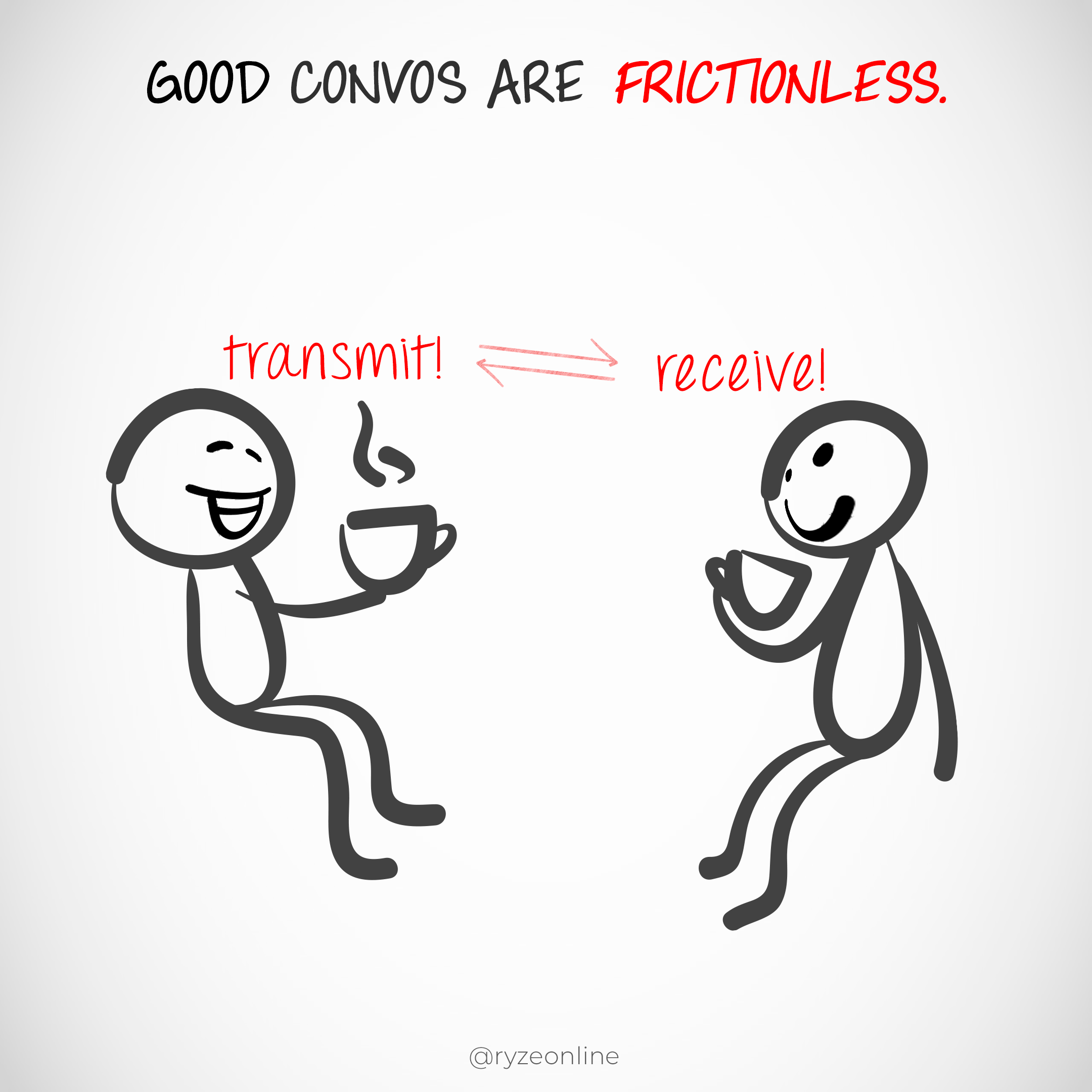
It’s such a blessing for the world when others gain understanding and clarity, plus I learn even more as I teach others. So I may not have some fancy piece of paper marking me as a ‘professor’ but I bet I’m more passionate and practiced in teaching than anyone you’ll meet. So for now, I might as well be your professor. Capiche?”
“Yeah, fine, whatever. But you interrupted me, how is that good communication?”
“Interruptions are a vital part of the art of communication, and we’ll get to that, but first we have to lay some foundations.”
“Why?”
“Because you learned communication from parents, teachers, peers, and other mediocre communicators. You didn’t learn it from anyone with mastery.”
“Ah, so I learned bad habits. How convenient you’re technically my step-Dad so I can’t blame you, can I?” Emma’s smirk curled sideways.
“You can ‘blame’ anyone you want, honey, but blame is a weak communication tool that usually won’t serve you. The point is that you definitely don’t understand the foundations well, and they’re the most important thing that we’ll be building on. So do you want to learn them, or not?”
“OK, ok. Yes, please.”
“Ooh, your first bit of politeness in our chat so far, perhaps you’re a better student than I first thought.” I stuck my tongue out with a wink to let Emma know I didn’t really mean what I was saying.
“I was just pissed at my post’s performance. I’m better now, honest. I’m listening. What are the foundations?”
Energy, value, and attention.”
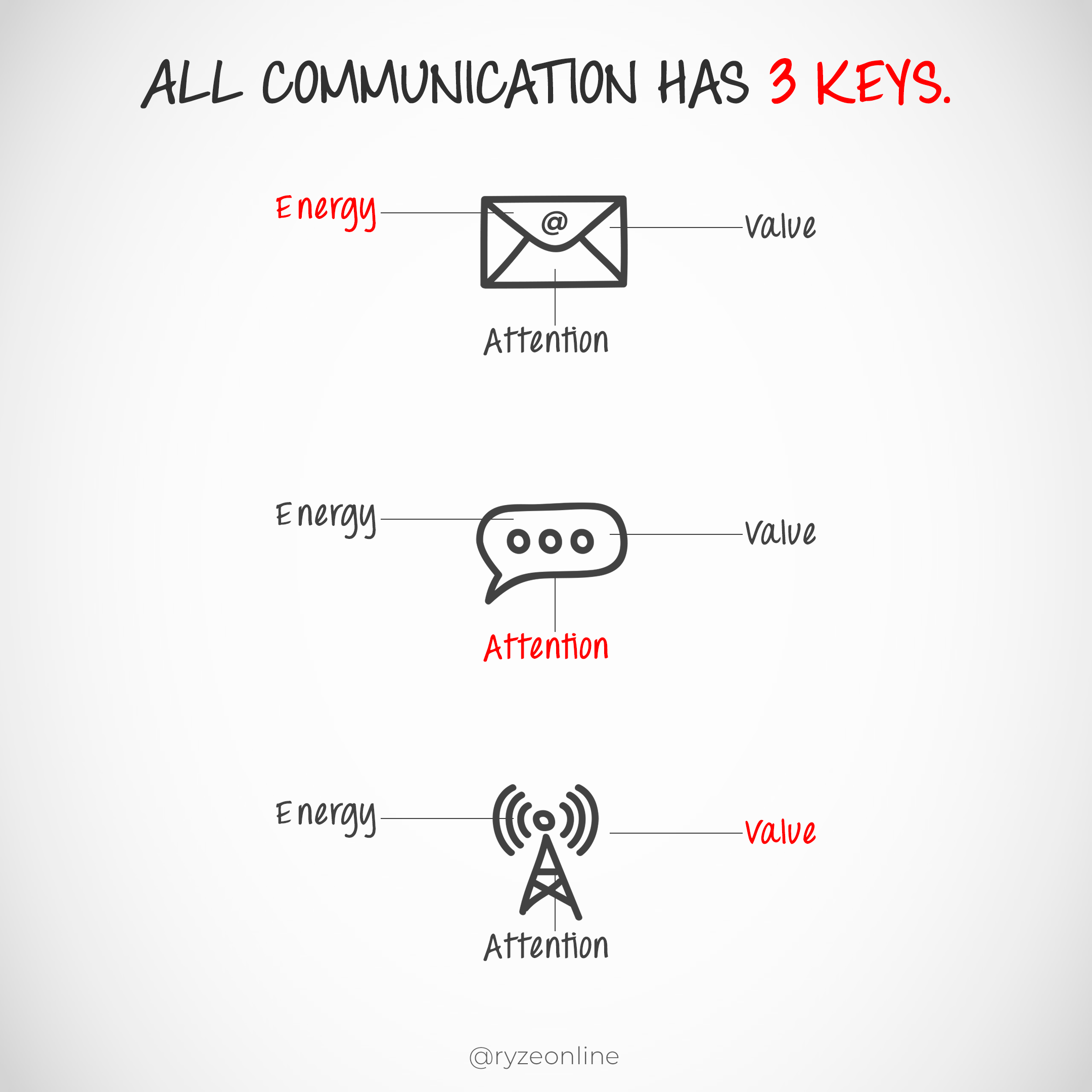
“Uh, hello? Are you telling me 'words' aren’t one of the foundations of communication?”
“Correct. Back when Neanderthals expressed using grunts, words didn’t exist. They weren’t the foundations of communication, they were something that came after. But you know what was there from before the very first grunt?”
“Crazy guess? Energy, value, and attention?”
“Very funny. But yes. Some levels of energy, value, and attention are present in all forms of communication.”
“Hmm… I don’t know about that.”
“Well, you’re a smart girl, try and find an example to prove me wrong. A cat communicating with a bird? They’ve no words, but there’s definitely an energy behind their communication, there’s a certain value in the information being expressed and received, and they’re both paying some level of attention.”
“Okay Mr. Smarty-pants, what about an amoeba?”
“Same deal. The amoeba is attending to information from its environment such as ‘hot’ or ‘cold’, ‘light’ or ‘dark’, etc. It then moves itself either toward that climate/object, or away from it. It can do this rapidly, with lots of energy, or it can do it gradually, with minimal amounts. Why would it bother? Because the amoeba knows that moving one direction has more value to it than moving another direction.
Communication: the exchanging of information, even in single-celled organisms.”
“Dang. I guess communication really does rely on the foundations of energy, value, and attention.”
“It does. And do I need to explain the nuances behind energy, value, and attention, or do you know what they are well enough?”
“I mean, everyone knows what energy, value, and attention are, right?”
“You tell me. You thought you knew what ‘communication’ was too, and you figured it’s core was ‘words.’ Are you sure you know what energy, attention, and value are? Can I continue teaching without you nitpicking me each time I use these terms?”
“Uhhh, I can’t promise that, maybe you’d better explain.”
"Energy.
Energy is the basic building block of everything, even communication. You can convert the energy in scraps of wood and paper into the energy of light & heat, it happens when you start a fire. Similarly, you can convert the energy stored in your body into a kind caress, or into an aggressive punch. And if you do that, it communicates something to the environment around you. (Not to mention anyone in it.) You can convert the energy of your ideas and consciousness into words aimed to harm others, or words aimed to help others.
If the energy in a communication is unpleasant, that hinders communication. If the energy in communication is appealing, that helps communication.”
“That makes sense. I think most people ‘get this’ on an instinctual level, if you use this term while teaching me,” Emma’s cleared her throat loudly, “—why no one’s reading my stuff— then that’s fine. I’m cool with it.”
“Wow, you’re so kind, Em, thank you!”
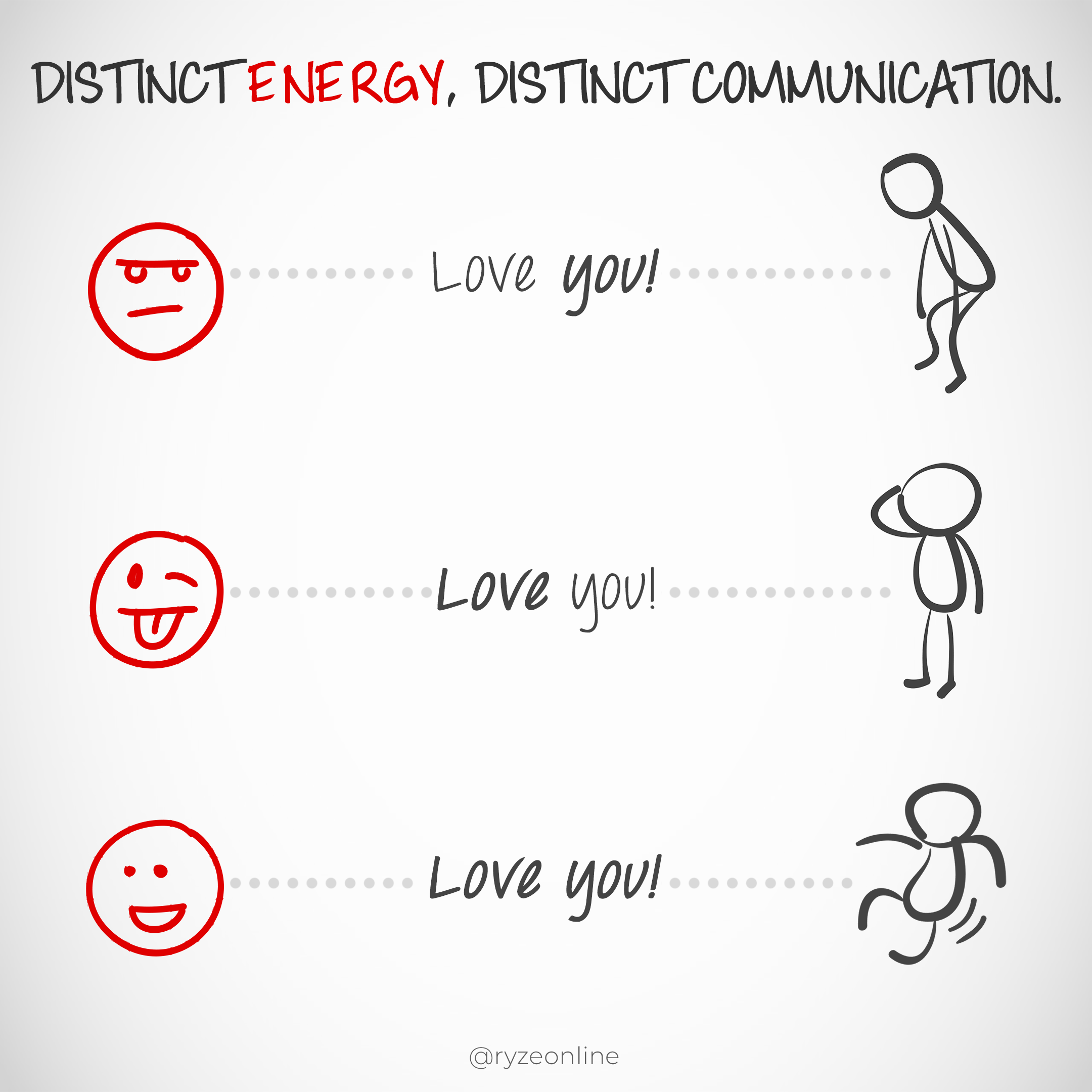
“Shush. Now about attention?”
“You seriously need me to explain ‘attention’?”
“I just know you have unique insights, I learned from our talk on free speech not to assume as much as I usually do.”
“Fair point. So...
Attention.
This is something we direct. If energy is a ‘thing’, then attention is the ‘light’ that we shine on it. Imagine someone in a burning building. We can focus our attention on our fear of the fire, and let them die, or we can focus on saving lives and ignore the heat. We can shape our attention into a focused laser-beam, or we can let it be diffuse, like a giant fluorescent floodlight.
If attention is directed poorly, it hinders communication. If it’s directed well, it helps communication.”
“I’m with you. I mean it sounds so obvious when you say it like that. We all have attention and we’re all directing ours moment to moment.”
“Yeah, so the next time Mom asks you to do your chores and you ignore her because you’re way too involved in World Of Warcraft, you’ve no excuse, right?”
“Daaaad. Cut it out. What’s next?”
“Value.
Value is benefits. It’s worth. It’s something all creatures are attuned to, but varies greatly. The earth going around the sun is valuable to all of humanity, as it helps our survival, but some people take it for granted, not seeing it as very valuable, while others cherish every sunset deeply.”
“Kind of like how I value these chats when I want to rescue my post, but have no interest in them when you’re lecturing me about homework, eh?” Emma's face turned smug as she basked in the glow of her zinger.
I took it in stride. “Unfortunately, yes. Another example: it may be valuable to ‘sleep through the night’ for one creature. It may be valuable to ‘sleep during the day’ for another. It may be valuable not to sleep at all in times of danger. The value of something often changes when we’re in ‘survival mode’, or even just triggered into an imagined survival mode. Unless you want to get very philosophical, the way it stands is that because we’re mortal with a limited time on earth, every moment holds value to us as time ticks by.
If value is perceived poorly, it hinders communication. If it’s perceived well, it helps communication.”
“Okay, but what does this have to do with why people won’t upvote me like they do others?”
“Think about it. If energy isn’t correct, your communication fails. If attention isn’t correct, your communication fails. If value isn’t correct, communication fails.”
“So what?”
“So, can you honestly say your post communicated well enough to be rewarded, despite you not being very clear on these communication-foundations?”
“Hmm… no I can’t.”
“Right, I haven’t read your post, but whether you like it or not, it’s a blend of these 3 ingredients. It’s a dish you serve up to diners (readers), and they either enjoy it, or turn up their noses at it.”
“They definitely did the latter.”
“Sure, but are we certain it’s because they’re bad diners who —in your words— ‘suck’? Or could it be that the dish wasn’t prepared so great, and the chef could use some improvement?”
“Ugh. You always make this stuff about me.”
“Because it is, love. It’s super easy to finger-point and blame others so that we can avoid taking responsibility for our results in life. And if you kept blaming people I would’ve just went outside and walked the dog and you wouldn’t be here learning anything.”
“Good thing I asked for help instead, ‘cause I really do want to solve this. I want my posts to be read, even adored!”
“We’ll get ya there, but first we’ll have to break down any bad habits and beliefs you’ve picked up.”
“What do you mean?”
Well, can you tell me what the purpose of communication is?”
“Uh, to like... talk to others?”
“You can do better than that.”
“To convey information to others?”
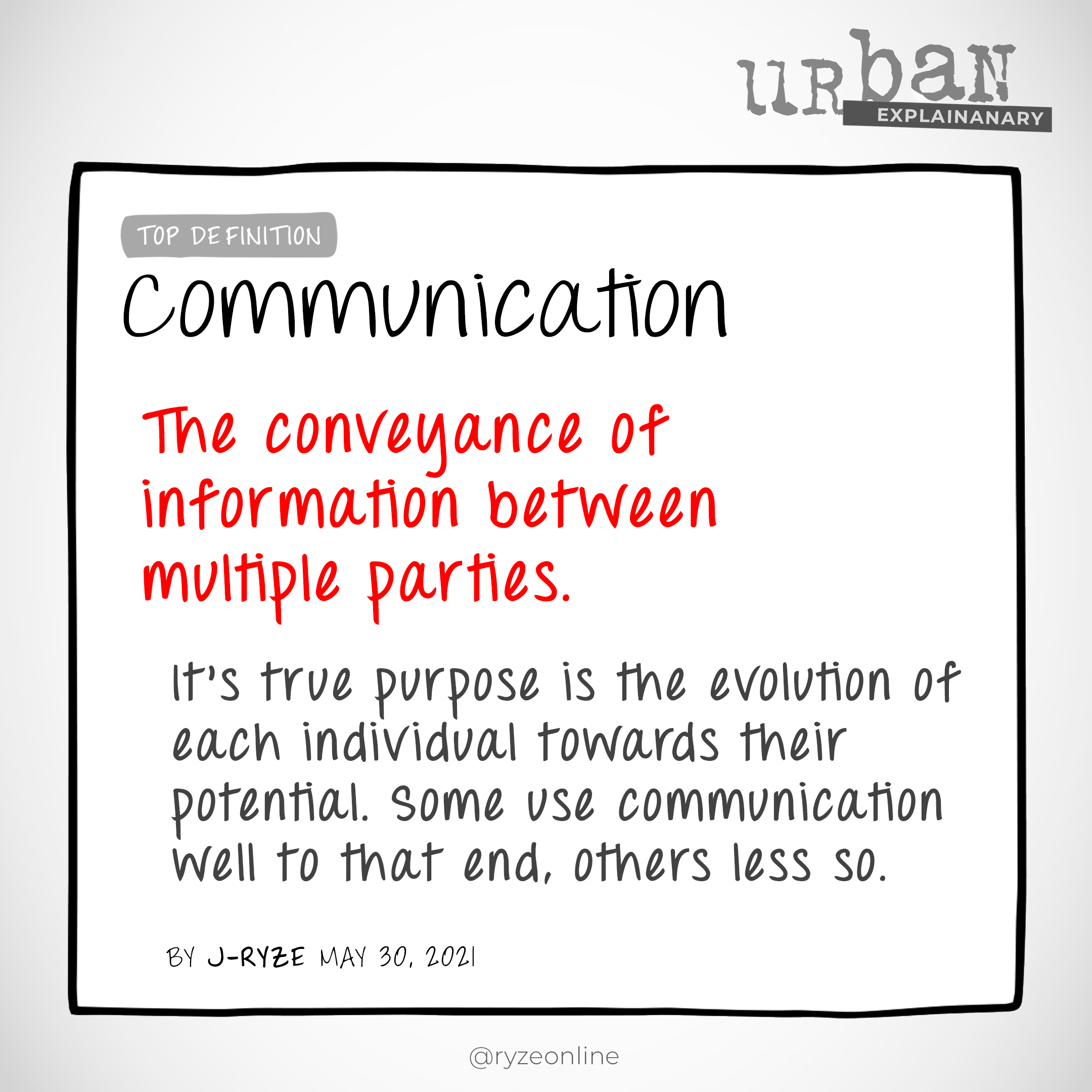
“Better, but why? Why would anyone need to convey information to others?”
“Because if they don’t, nothing’s going to get done?”
“And why does that matter? Is there something wrong with nothing getting done?”
“Obviously. Our entire species would run out of food, die off, and so on.”
“Ah, so are you telling me the purpose of communication is the survival of our species?”
“I never really thought about it, but yes, I guess I am.”
“Good, now we’re getting close to the purpose of communication.”
“What do you mean, ‘close’? The species must survive, so we must get things done, so we must convey information to others, which means we must communicate. Its purpose seems clear to me now.”
“You’re right, but with a minor tweak. Communication’s true purpose is the evolution and expansion of our species, not it’s mere survival. And it’s not just evolution of the species, it’s evolution of the individual. Each individual has the desire to reach their potential. When they’re cold, they have the potential to be warmer, so they seek warmth. And they will use communication in an attempt to reach that potential.”
“Whatever, fine, ‘potential’, ‘evolution.’ Can you just evolve this chat towards my upvotes please?”
“Yes, but only if you understand that when you post something out into the world, you’re doing what humanity has done since the beginning.”
“What’s that?”
“You’re offering an idea, a view, some information, some content, and it is being judged on whether or not it is valuable to the individual, and to humanity as a whole. Let’s go back to my caveman example: When Zog discovered fire, it was strange to the other Neanderthals, and Zog had to communicate that fire wasn’t a threat to the tribe, it was a valuable blessing. If he used the wrong grunts, or if he accidentally burned someone with it, his message may seem to be harmful. If he put more care and attention into his communication and demonstrated his discovery well, then his message is likely to be valued and rewarded.”
“What about if I’m just saying something like ‘its sunny outside?’ That’s not me offering something and being judged, is it?”
“It really is. You say it’s sunny, the listener has the option of trusting and believing your info. Or they can disbelieve you. Or they can reserve judgment until they check for themselves. Or they can communicate that you’re staring at a hologram of a bright blue sky they had set up earlier. One side offers some information, the other side responds to that. Communication is offering and acceptance, or offering and rejection. Even choosing to ignore something is a form of acceptance or rejection.”
“I’m getting it. I can see that because energy, attention, and value are involved in all communication, that what you’re describing will happen with everything, from sharing fire with tribes-people, to asking a friend if they want to go to a movie.”
“Yes, all communication is either people agreeing with your views, beliefs, and direction, or disagreeing with it.”
“This is like when you explain free speech, isn’t it… what do you always say? ‘To sell is human’? Everything is selling? Something like that?”
“Pretty much. The economy has existed ever since one cave-dude traded another cave-dude something. Likely before writing or speech even developed. Speech and writing came about with the purpose of helping one person offer information to another, and for the receiver to respond to it. Information stemming from our thoughts, emotions, and energy. Words are tools that can be used in many ways. If a parent says to a kid, ‘everything will be fine’, they’re not using words to make a ‘rational prediction from available facts.’ They’re using words to ‘skip logic and offer comfort.’”
“You’ve said that very thing to me. And I appreciated it.”
“Yes. And take another example. If Samantha says to John ‘You never help me, John! You’re so unreliable!’ John might just assume Samantha is using her words as a tool to ‘state facts’ about him. He gets defensive. But he is not understanding the communication properly. Samantha wasn’t using her words to state facts. The energy behind her words aren’t really that John never helps. The energy is that she’d prefer John to be more nurturing. But she has phrased it in a vague way, and John hasn’t attempted to look behind the words. Each word we express can be chosen well, or poorly. And each word we write gets judged by the receiver on whatever value they can find in it, and behind it. ”
“Yeah well ain’t nobody seeing value in my post.”
“Easy my girl, that’s just because you’re still weighed down by old language habits.”
“Well I’m sick of them. I want to be a better communicator.
Why do I have these habits anyway?”
“Like many things, you pick them up because of the environment and system you’re born into.”
“You told me that already, but how did they start?”
“You started out communicating honestly, authentically, and straight-forwardly. You’d cry when you were hungry, laugh when you were happy, and so on. You understood that everyone has desires (yourself included), and that communicating truthfully about them was how things were meant to be. And it worked for a while.”
“Are you saying I stopped doing that? That I’m not straight-forward and authentic about communicating my desires?”
“Correct. Almost no one is. No celebrity you can name. Not even most ‘gurus’ you may look up to. Not even me, though I do try very, very hard to manage it.”
“Uhhh, ok. Why did I stop communicating like I did as an infant?”
“Because the people who raised you trained you to be like them. You watched them walk, and learned how. You watched them talk, and learned how. And you watched them hide their true desires using bribes, threats, guilt, blame, victimhood, excuses, and more as tools to ‘get what they want.’ And you learned how. You quickly learned to abandon honest, direct communication of your desires in favor of lying to yourself and others using terrible communication habits to get what you want. Most parents, teachers, and peers are a terrible place to learn communication from, they are not masters, artists, or teachers of communication… but they’re all you had.”
“Holy. How have I not seen this before?”
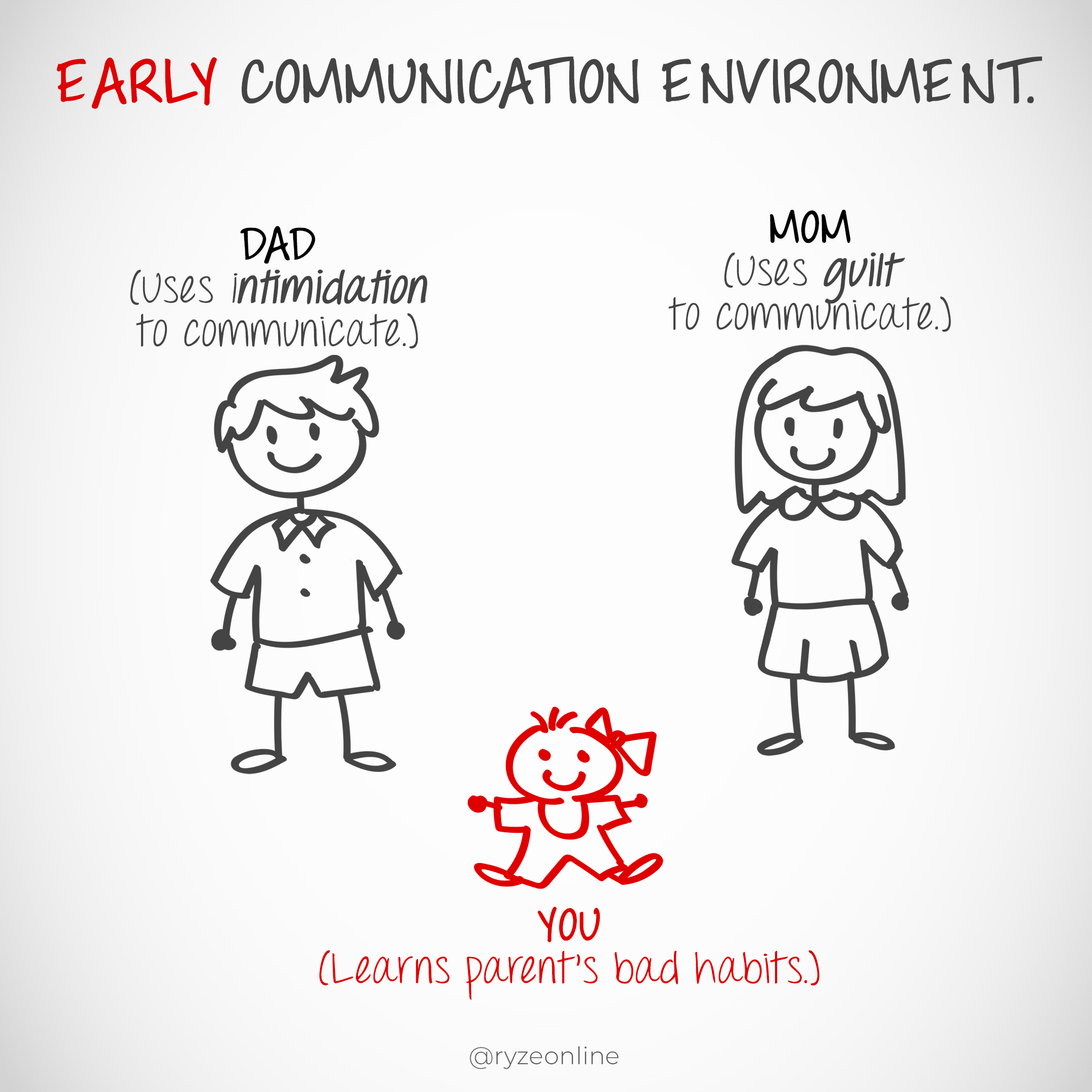
“Because you’ve been like a fish swimming in the water. You don’t know there’s a whole world of awesome communication above you, because you’ve been immersed in the sea your whole life. You don’t notice anything strange about it, and you’ve adapted gills to navigate it.”
“So you’re yanking me into a new way of communication where I can’t breathe?”
“More like I’m turning you into a mermaid so you’ll know what to do whether you’re in old communication environments like the water, or new communication environments like dry land and fresh air.”
“That sounds beautiful.”
“It is, but you’ll have to let go of lashing out, over-biased assessment, lying to yourself, shirking responsibility, blaming others, deciding during emotionality, creating knee-jerk rules, playing the victim, and more. That stuff will come through in your writing.”
“I don’t do all that!”
“You just did! Saying you don't is an over-biased assessment. The truth is, we all do those things, have done those things, or may slip-up in a moment and do those things in the future. Pretending they don’t exist, or that you’re some inhuman paragon of perfection who doesn’t ‘do that’ is where a lot of poor communication comes from.”
“OK fine, but I didn’t do that in my post.”
“We'll examine your post further into our talk, but you’re missing the point. You don’t get the luxury of being a sh*tty communicator in most areas of your life, while somehow being masterful at it while you’re posting. You’re either a great communicator who gets positive results, or you’re not. Period. Are you honestly telling me you’re a great communicator? How would you even know?”
“I don’t know, I just am.” Emma sulked.
“Oh, my sweet child, this is what happens to everyone. You can’t improve and learn to be better until you admit there’s room for improvement. Admit I may know more than you. Learn to notice better communicators whenever they appear, and aim to be more like them. You must seek change... not argue, fight, and resist it when it’s happening. Especially when a kind teacher is guiding you towards a better version of yourself.”
“I still don’t think I do those terrible things you listed.”